Already a BAFTA-winning composer for his scoring of the acclaimed documentary Touching the Void and with multiple notches on his belt with Golden Globe nominations for movies like The Last King of Scotland, Mandela: Long Walk To Freedom and State of Play, not to mention his work in films like Escape Plan, Queen of Katwe, Miss Bala, and most recently, Hope Gap, as well as scoring for television projects Black Mirror (Netflix) and the 8-hour mini-series reboot of Roots, ALEX HEFFES is now an Emmy contender in the category of Outstanding Music Composition for a Documentary Series or Special (Original Dramatic Score) for the acclaimed Apple TV+ documentary THE ELEPHANT QUEEN.
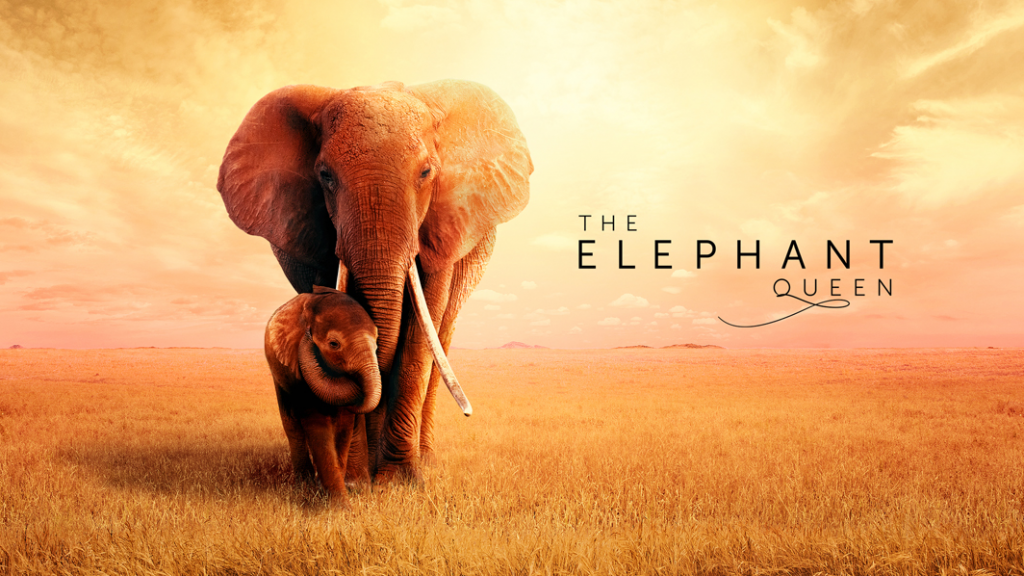
Known for his range as a composer able to tackle every genre from horror to drama to action to documentary and beyond, it is the emotionality of Alex’s work which sets him apart. He can just as easily and effectively score an action picture like Escape Plan with Sylvester Stallone and Arnold Schwarzenegger as he can a heartwarming Disney film like Queen of Katwe. It’s this diversity that makes Alex perfect to score a wildlife documentary like THE ELEPHANT QUEEN.
Directed by the acclaimed wildlife documentarians Mark Deeble and Victoria Stone, and narrated by Chewitel Ejiofor, THE ELEPHANT QUEEN follows the journey of Athena, 50-year old matriarch of an elephant herd in Kenya. Following the journey of Athena and her herd, we see the circle of life unfold over the course of a year as it falls to Athena to lead her herd family, to sense the upcoming dry season, intuitively know when the herd must start its treacherous journey to a water refuge, balance the care of a sick baby elephant with the needs of the herd as a whole, and then eventually make the return trek back to her kingdom. But along with the elephants, we meet the other residents of the kingdom, giving us a full and complete picture of the region’s ecosystem and the interdependency of each species on one another.
Tasked with scoring a story that not only captures the emotionality of Athena’s story, but that of the other creatures of the kingdom, each with their own individual and distinct personalities, the jumping-off point for Alex was learning to speak elephant; connecting with these magnificent creatures and learning their body language and translating that into music.
I spoke at length in this exclusive interview with Alex about the uniqueness of scoring this film; about creating musical motifs not only for a particular species but for individual creatures so that the music captures their personality, such as with Stephen the baby Egyptian Goose (“Stephen’s Adventures”) or Wei Wei, a rascally little one-year old elephant (“Wei Wei and the Tribe”), or a very determined little dung beetle (“Dung Beetle on a Mission”, “Ride of the Dung Beetle”); about finding the heartbeat of Athena and her kingdom; finding hope in the circle of life when dealing with death; and the importance of instrumentation in the design of the score and melding that with actual night sounds Alex captured while spending time in Kenya.
This is a very emotional, very layered, and very textured score that speaks from the heart, the heartbeat of Athena, filling one with awe and wonder, laughter and tears, as ALEX HEFFES speaks elephant through music.

Alex, your score for THE ELEPHANT QUEEN is a lovely change for my brain. This score is so wonderful. I love it. The music is almost anthropomorphic with the elephants, with all the other creatures, with the bullfrog, with Steven the goose. You bring such personality and whimsy to each animal and the film overall while also addressing the somber notes of a year in the life of an elephant and the elephant’s journey. The section with Mimi, it wasn’t mourning music. It wasn’t a funeral dirge, but it was respectful and there was some hope in it. Because your music is so in tune with the animals themselves, I have to ask, do you speak elephant? Do you speak bullfrog or foam frog or terrapin turtle? Because your music just captures them so perfectly.
Well, thank you. That’s very nice of you to say. Actually, it’s funny, but I do say that you’ve got to learn to speak elephant. It’s true. The filmmakers would say to me, “No, the music’s all wrong here. Why have you done it like that?” And they’d say, “Look. Look at that elephant. She’s wrinkling her trunk at that other elephant. She’s clearly not happy with him.” And I’d go, “Oh, okay.” They really taught me over a long period of time to tune into what I was looking at and try and find what the music equivalent is. But it’s sort of hard. It’s not like actors who are reading a line and you get what they’re trying to say. Animal behavior is a whole different thing, so I’m glad you felt like it communicated that because it’s a bit of a thing.
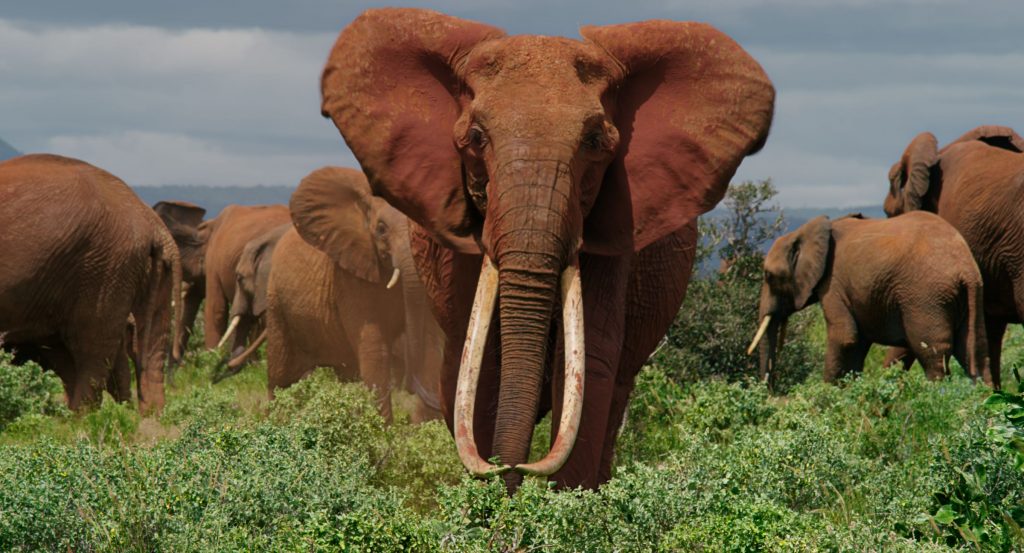
An important part of your compositions and the various motifs that you have, and I know every time Steven the goose pops up, his little motif comes in and it just makes me smile…
Well, that’s good. I really wanted the music to make people smile and feel engaged and feel like they love the characters because that’s the way into people’s hearts about conservation as well as just falling in love with something. That’s what I wanted the music to convey so I’m glad you’re thinking that.
. . .but so much of the compositions are actually your orchestration and most particularly, your instrumentation. That’s something that really struck me – your use of instrumentation in conveying emotion and character personality identification. With the opening of the film, there’s a flute or a piccolo and we get a mystical sound and then some strings slowly come in, and then your whole tempo sets in moving slowly like the lumbering elephant. There’s a little bit of melancholy, but then the score stops, the thunderstorm starts, and then the next morning everybody’s up. “We’re waking up! We’re waking up!” Then your music slowly starts coming in and the personalities start emerging as we meet them, as we see them playing in the muddy watering hole, as we meet the bullfrog, the turtle, and of course, our little baby elephants, Mimi and WeiWei. But it’s the instrumentation that really speaks specificity. Having heard so many of your scores, Hope Gap which is fabulous, Last King of Scotland, Escape Plan – Come on, Alex! You write for Stallone and Schwarzenegger in an action film and here you are enchanting me with a score for elephants!
You can’t put me in a box, I guess! [laughing]
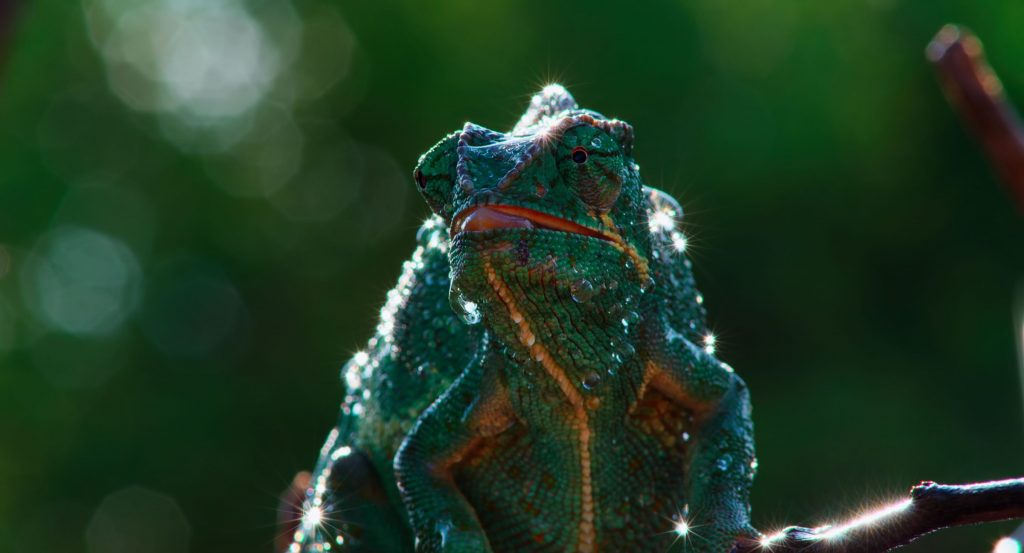
So, I’m curious. As you’re composing, are you thinking of the instrumentation, or does that come in later to help solidify what you’re bringing to life?
Oh, that’s an interesting question. I think a lot of the time I do hear the instrument as a character and so I sort of go from there. Sometimes you write a tune and you find, “Well, what it would be like on that instrument or this instrument?” But actually, a lot of the time, I do hear the instrument first because I’m always looking for a character. You’re right though. Something like The Elephant Queen, there’s so many different characters that I think I was just always thinking about, “Well, what color could we have here for the chameleon? What color would be funny for a really slow-moving tortoise or for the dung beetle? What color would be funny for this silly little thing pushing its dung ball around?” I probably am thinking of the instruments, and I have a lot of instruments lying around. I’ve got all the percussion instruments. For the dung beetle, I’ve got this fun little thumb piano made out of a sardine can that I think I bought in South Africa which has a twangy little sound to it, which I used on that. Sometimes, just having something lying around and giving it a hit or a twang and saying, “Oh, does that say dung beetle to me?”
With the dung beetle, I actually made a note and put a question mark because is it almost has a twang like an electric guitar.
Yeah, there’s electric guitar there. And there’s a thing called – I’ve got it sitting right here, actually. It’s actually an Indian instrument and it’s got one string and you can squeeze it and make that funny sort of noise that goes in and out, and I used that a little bit on the dung beetle. They’re so up there on a different plane from the other animals, I wanted to find some sounds that were just different. I had an old Mac Pro that doesn’t work in my studio, one of the cheese grater ones, and I played it like a snare drum on the front because it’s got a rather nice sort of cheese grater front. For the dung beetle, for the percussion tracks, I just played the front of the computer with some brushes and they sounded sort of fun so that ended up on the movies. Sometimes, I just like to give something a go and see where it takes you.

Going beyond the instruments themselves, in the composition, in the orchestration, I love the way a lot of this breaks out where we just start with a simple single-note piano and it grows slowly from there. Like the chameleon trying not to get eaten. We’ve got some single notes in there that come right after the time-lapse of the flower blooming and it picks up from there.
You’ve studied this! I’m very impressed. You were really on it!
I am obsessed with music and film. My master’s thesis was actually on the Hollywood movie musical. I love scoring in film and I love how instruments can bring a character or an emotion to life going beyond the score itself. And then you break out the orchestration. I was very lucky. A very dear friend of mine for many years was Joe Gershenson, who was the head orchestrator and composer for Universal for many, many years and was at Fox before that. Joe actually took me into the scoring areas and showed me how he orchestrateds with full orchestra. It gave me such appreciation for what composers do on the scale of a film.
Oh wow! That’s amazing. I mean, we were very lucky on THE ELEPHANT QUEEN because the producers were able to give us a big orchestra for a couple of days to record in London which is, for a documentary, sort of unusual, but the filmmakers really had this vision. They didn’t know what the music was going to be, but they had this vision that they wanted it to be a huge character in the film and they wanted it to have all these colors and bring the characters to life. That’s, I think, why they came to me and asked me to do it. It was a chance to have a really big palette and, as you say, have all these different characters and find all these different colors in different characters through the orchestra and the different instruments. It’s a sort of a unique opportunity on a film like this to really, really do it properly.
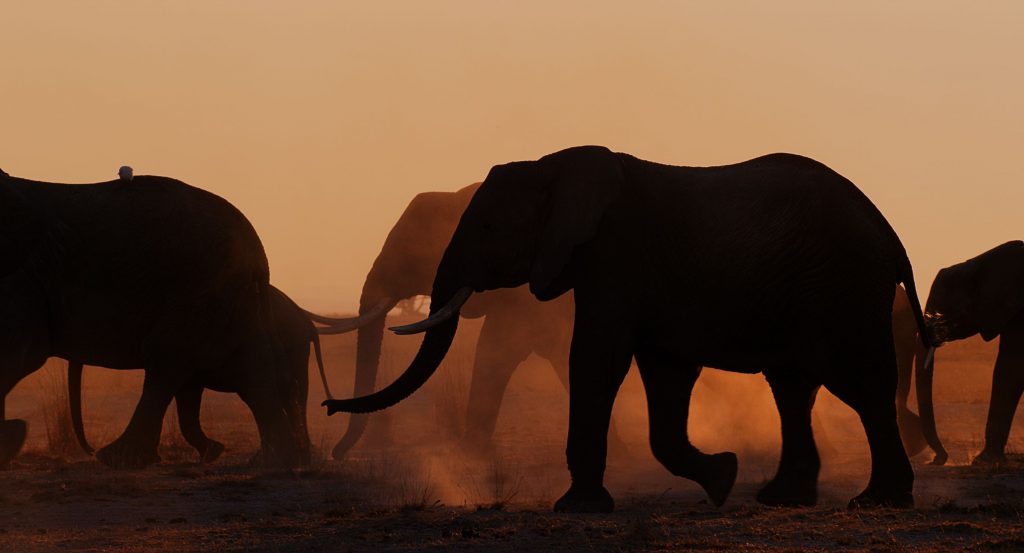
You have great diversity with the percussion in this film as well. We get tribal notes, we get other notes in here, and I love the way you make use of percussion, almost as if it’s a beating heart.
Right! Well, I’m not a percussionist, but I really like playing percussion and I program a lot of it on the computer or I play it live. Of course, we have real percussionists come in and play it, but I like to sort of get a feel first for it. I like to hit something and feel like I can actually feel it in my hands first to get a feel for how it might be and then I’ll get an amazing percussionist or an African drummer or something to come and do some things based on that and then, of course, they do their own thing. I’m glad you liked the percussion because it’s a big part of THE ELEPHANT QUEEN.
It really is. And you have that motif and that percussion throughout the film, but then you also complement that when you bring in some vocals, some chorale, in certain moments, and that adds another whole layer with the music itself. I just think it’s beautiful.
Oh, thank you. Elephants are tricky to score, in a way, because they’re very hard to read. As I said, they don’t give much away. Their facial expressions don’t change at all. It all comes from the trunk, actually. If you can read the trunk, you can get their emotion. But if you don’t know what you’re looking for, it’s sort of hard. I was looking for a way of trying to get the audience under their skin in a way to try and get inside their head and voice. The human voice does that because we all connect to a voice but obviously, with elephants we couldn’t have words so I wanted to have a wordless voice, something that can convey what Athena the matriarch elephant might be thinking at some of the more intense, emotional moments. That’s why we tried that wordless voice, to try and just connect the audience on an emotional level because at the end of the day, you have to feel something for these animals or the movie is not going to work. You’ve got to feel fun and hope and despair and joy altogether, and then you realize you’re watching a movie about a family. It’s not just about elephants, but it’s like a family story, really.

Oh definitely, Alex. Definitely. There is not a moment watching this that the elephants do not feel like a family and similarly, the other creatures as well, even though Steven likes to leave his family and be the last one and get lost and they don’t realize he’s not there.
Constantly! [laughing] It’s amazing. You couldn’t make this stuff up, but it’s real. It creates such an incredible opportunity for music because there’s so much color and so much life going on that, for a composer, that’s just like going into a candy store. For me, it’s just like, “Wow, they got all this to work with. Yeah, let’s go for it.”
At the hour 13 mark or so with the drought; they’re starving. We’ve got the visuals of dead zebras all over the Savannah and Athena has to move on, but timing is key to head back to the kingdom. The orchestration there is incredible. You bring in the orchestra, but you do it very subtly. It’s not overpowering, but you can feel the power of the whole orchestra and it’s very strong. You feel Athena’s strength in that moment through the whole orchestra coming together at that point in the score.
I’m glad you think that because it’s quite a difficult area of the movie to do, actually, and we actually did that over a couple of times. I think the key to it was not coming in all guns blazing with everything at once, as you say, but building it up so that you have an element and then it builds and it builds and then you suddenly feel this well of emotion. But sometimes, you need to approach it from one side or an angle in order to build up to it, if you know what I mean. Otherwise, the audience feel manipulated too easily, too soon.
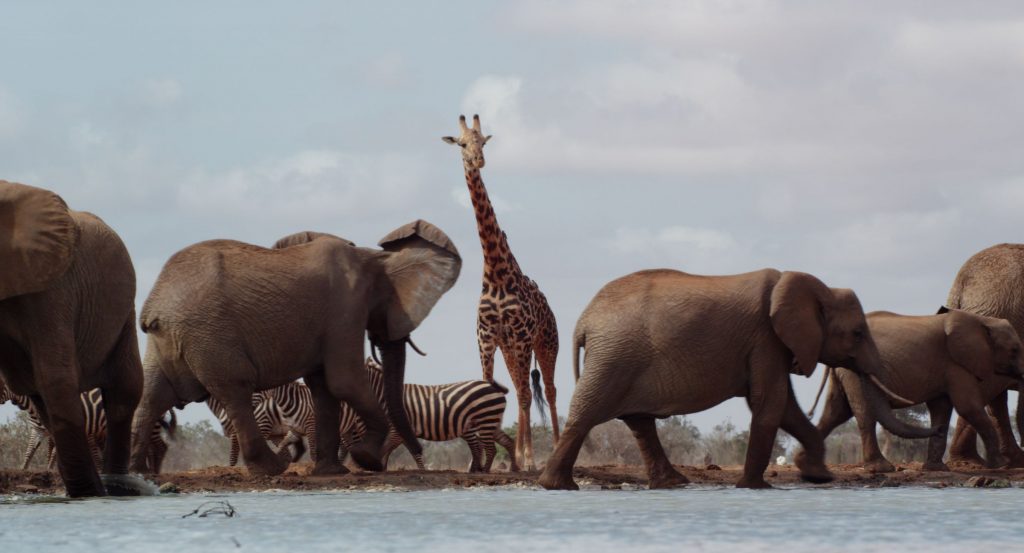
And of course, that comes just a few minutes after we have the triumphant music where everybody is at the new watering hole at the refuge. That’s so fun. I have to ask, Alex, did you have to integrate the score with the visual edit, or did the visual edit integrate with your score?
Well, that’s a good question. It was both, actually, because the movie was still quite unfinished when I started working on it. They would send me sequences five minutes or 10 minutes at a time and I would work on them. As I sent stuff back to the filmmakers, I think that would slightly influence how they might cut other sequences together and then they would say, “Oh, well, that’s interesting. That works really well so we’re going to try doing this here.” There was a bit of ping-pong backward and forth trying to sort of bounce ideas off each other, which is unusual, actually. That’s more of a documentary style, but they had so much material that their real problem was not the quality of the material because everything was fantastic, but how to shape it into the best sort of logical arc. Because there’s so many characters, there’s so much going on, as you say, the music is sort of like a through-line that helps you through that and feel like you’re on that one journey. It’s almost like a road trip when they go off into the desert and they’re on this big trip. When they get back home again, as you say, you’ve got to feel the sense of what goes around, comes around and you feel like you’re back.
It’s that whole circle of life concept.
For sure. For sure. It’s true.
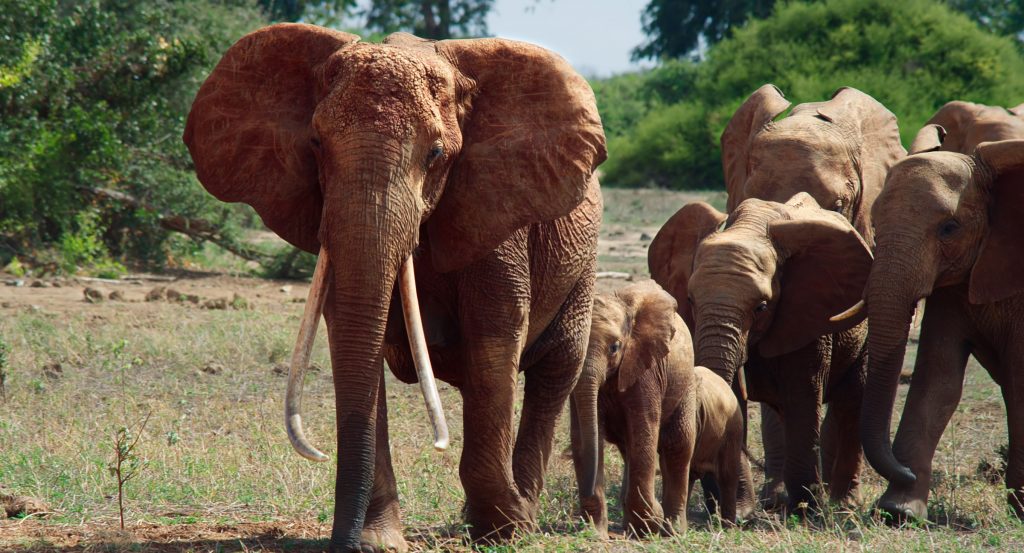
Because of all the sounds that we have – and there are several moments, such as with our favorite dung beetle – where you’ve got Valhalla overture in there and a mix with helicopter sounds and your score is also coming in, your dung beetle motif in there, so I’m curious, did you also work with the sound people with all the animal sounds that are inserted? Because some of them become part of your score.
Yeah. I was incredibly lucky that I went out to Kenya to where they filmed the movie and I stayed in the filmmakers camp, a little camp of tents in the middle of nowhere and in the nature reserve, and spent a few days there, which is an incredible experience. But it really gave me a sense of what it sounds like there, which is very, very quiet, but also you can hear the tiniest of sounds that actually are really far away because there’s no trees or mountains or anything so sound travels a long way. It really gave me a sense of just the environment that’s out there so when we were back mixing the film, I was able to work a little bit and spend a little bit of time with the sound designers, just mixing in the music and dropping little bits of music here or there, or integrating things to try and make it all sit together.
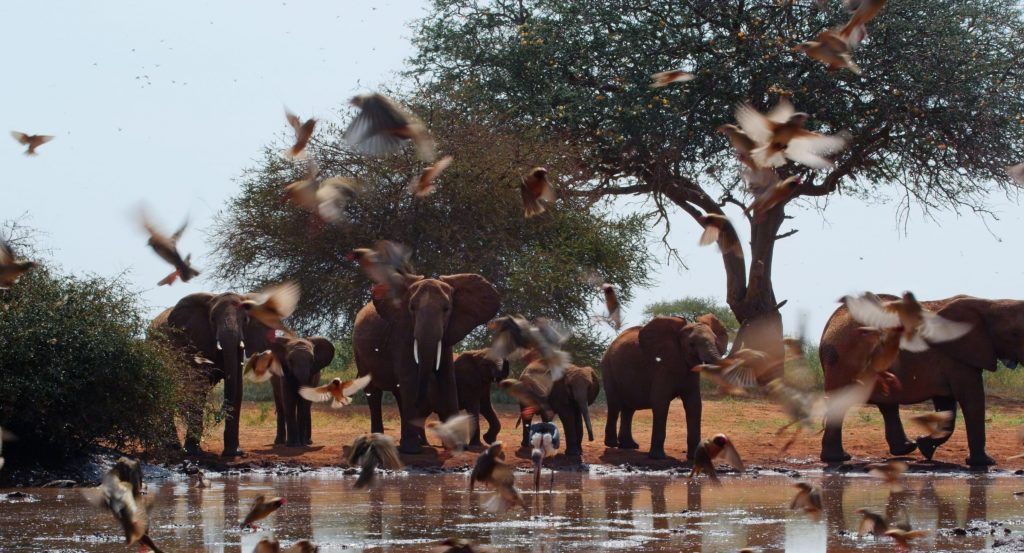
We hear that with the big bullfrogs and the little frogs, the birds, but then nighttime is where we really pick up a lot of the animal sounds with just an undercurrent of the music added. I just think that’s so beautifully put together.
Thank you. It’s an unusual opportunity to be able to do all of those things, but this is a film that has so much music as well. What’s on the album isn’t everything that’s in the film because we sort of couldn’t fit it on there. There’s definitely 70 or 80 minutes of music. With that much music, it’s got to be integrated well into the movie otherwise, it becomes too much and overwhelming. I was very keen to make sure that it sits right in the film.
With this much music in the film, Alex, is there ever a point where you have to quote-unquote, like a writer does, kill your darlings?
Yeah. There are a few places I was actually really strongly in favor of dropping music here and there. Actually, the filmmakers, they were loving the music and what it was doing for the film so much, I really sort of had to struggle to clear some space in there too sometimes, which is usually opposite of what composers are doing. Just finding these little pockets where you could just do without or thin it out. When you look at the final score and the music session, the music is really like an animation. It runs all the way through the movie like you do have in an animated movie; just defining the shapes where you can go down to something very small so it’s not all big all the time is sort of important as well.
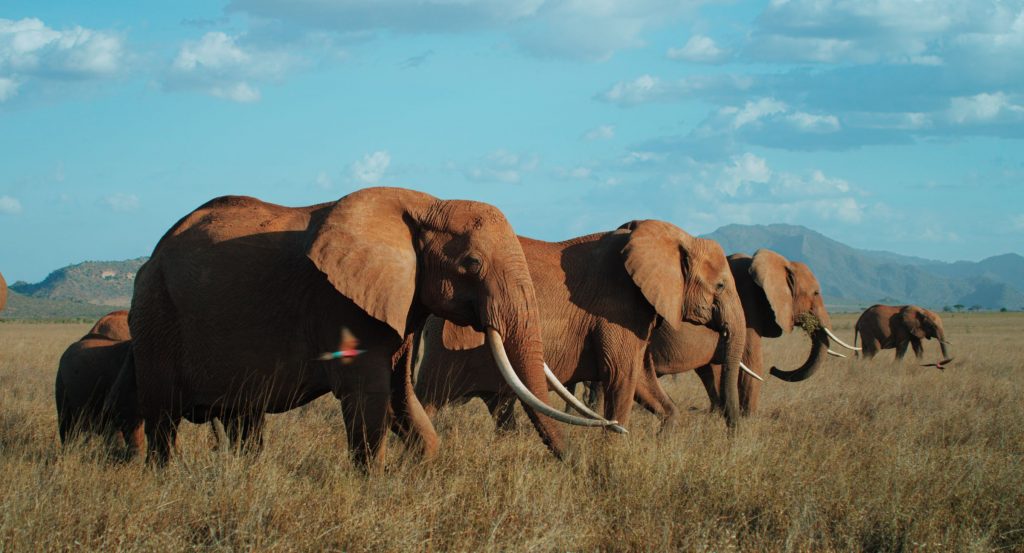
Besides learning how to speak elephant, what would you say was the most challenging aspect of scoring THE ELEPHANT QUEEN?
Well, like I said, the really hard side of nature where young elephants are maybe dying or getting very sick is really tough because I didn’t want people to go to this movie and not enjoy it. I wanted them to really enjoy on an emotional level, but you can’t shy away from the truth of how hard things are as well. Musically, trying to treat that little Mimi the baby when she gets sick, it was really hard to make it emotional but not emotive or overwrought. Just pitching that at the right level was very tough. But I’ve seen the movie quite a few times with an audience in theaters, and the great thing is that they are really moved and you see people wiping their eyes. But what happens afterward with that circle of life thing, which originally, the filmmakers hadn’t expected, after the Mimi sequence. They thought we would have this very tragic sort of section afterward, which would be sort of very heavy and emotional. When I gave him the music, it was totally the opposite. Actually, there’s a sequence where the geese fly off and they start migrating. To me, it really felt like you needed to pick people up after they’ve had this really bad experience. You need to be picked up off the floor and say, “That was hard, but it’s okay because there’s more to life. Things are going to regrow, regenerate.” When they first heard the music for the geese flying off, they were like, “Wow! We never thought we would have something hopeful after that.” It’s actually, I think, their favorite piece, one of my favorite sections in the film as well because I’m an optimist and I like to bring some hope and a ray of light to even the darkest moments. It was unexpected, but a nice turn, I think.
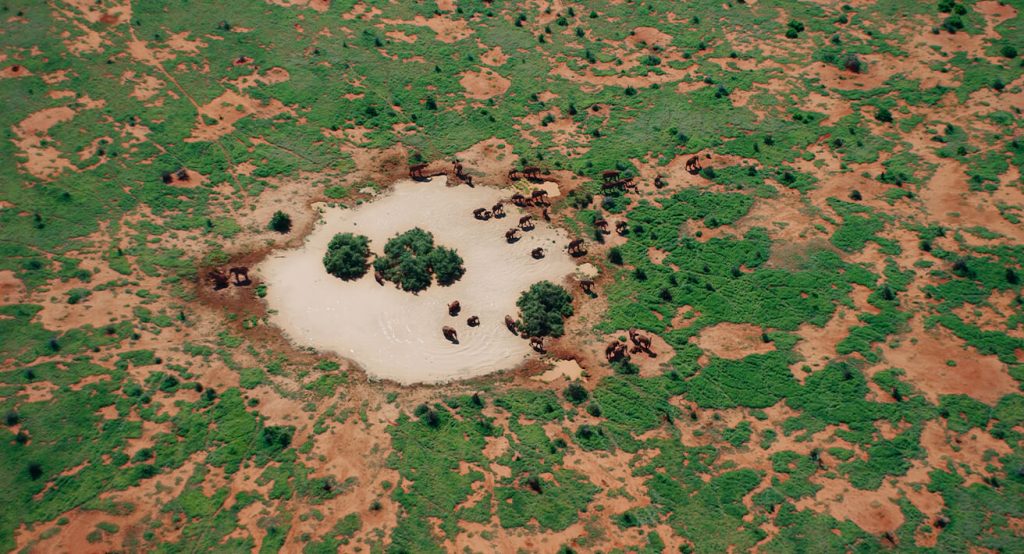
It’s very hopeful. The way it turns after Mimi is very, very hopeful. Even as we’re seeing poor WeiWei, that naughty little boy, mourning the loss of his friend. And Alex, I love the motif you came up with for him, too.
That was really fun, and they weren’t expecting that either. I spent some time in South Africa when we were making Mandela: Long Walk to Freedom and I love that style of music, sort of South African jazz. I really felt like he needed something fun with a bit electric guitar, just having something with a bit of a groove to it just felt really right for WeiWei. First of all, when they heard it, they’re like, “Oh, we weren’t expecting that but yeah, we’re good with it. Like it.”
Alex, it sounds like you surprise them every step of the way with this.
As you know, writing music for movies is very collaborative and it’s really important to give filmmakers what they want, but it’s also really important that you give them what you think is right and surprise people as well because people want to be delighted and surprised as well. Hopefully, the music in this film will delight people and slightly surprise them in a way. I wanted it to be more than what you would expect from just a regular documentary.
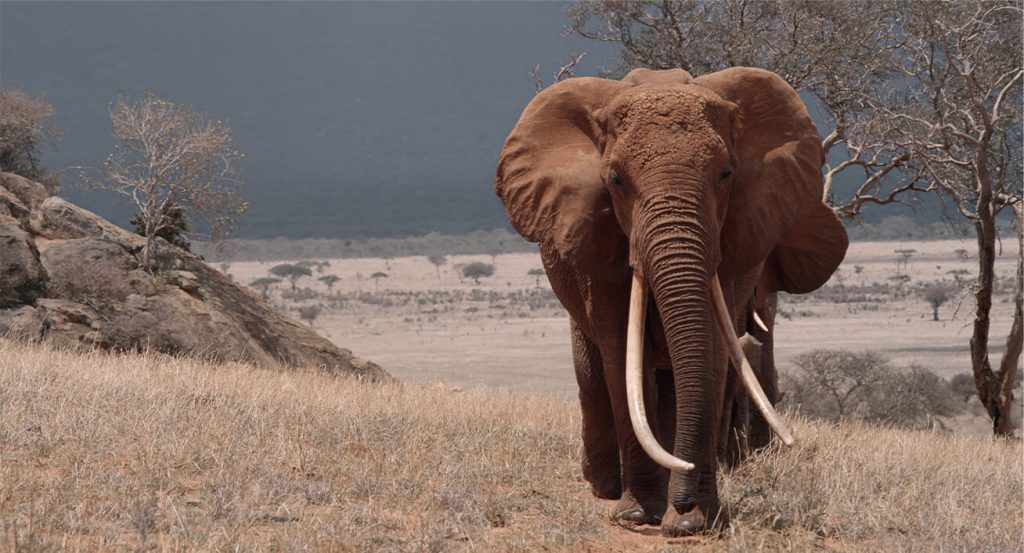
At the end of the day for you, what would you say is your most favorite piece in this film?
That’s an interesting question. Actually, it’s very obscure, but one of my favorite moments is a tiny, tiny moment which is in that drought section you’re talking about where they leave the watering hole and they leave the safety and they go back into this terrible drought because the water’s dried up. There’s this big dust storm and it’s all very dramatic. But then what happens just for about 30 seconds is the camera goes underground and you go beneath this terrible inferno of dust storm. You see this incredible shot of the sleeping hibernating frog underneath the ground, and the frog knows nothing about the apocalypse which is going on above it. It’s just sleeping there. We just brought back that theme of the geese flying just to the very gentle little arrangement with voiceless sound and choir. For me, it’s just such a beautiful moment because you’re taken into suddenly a different universe where this frog is totally happy. It’s got not a care in the world and for me, it was just a beautiful escape from the harshness of what’s going on. I really liked that moment, even though it’s probably unremarkable in the big sweep of the whole story.
That moment stood out for me as well because of Chiwetel’s narration. He describes the animals who are burrowed or trapped underground as being “trapped in suspended animation.”
Exactly. He’s got a great voice and he really brought a lovely character to it. He came in very late so I didn’t have any of his narration when I was writing the music. It’s really nice to hear it finally all sort of pieced together.
And Chiwetel has a great lyricism when he speaks.
Yeah he does, and he has a really great way of always keeping it light. Even when he brings some gravitas to it, it doesn’t get overly pretentious. It’s always got a lilt to it, which is lovely. Very musical.
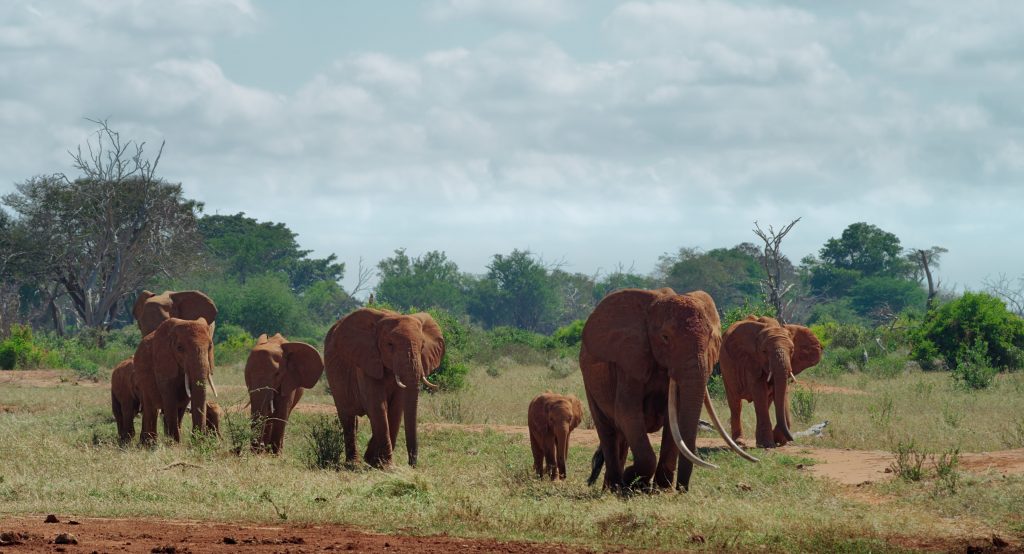
I am so thrilled I got to talk to you today about THE ELEPHANT QUEEN, Alex. I love the film. I love the film. And fingers crossed for Emmy.
Thank you. I’m glad that you love it. An Emmy would be nice, but I’m just thrilled that you love it because it just means a lot that someone’s connected with it. I love that.
Any man that can write for elephants and Stallone and Schwarzenegger is a talented man.
Well, I always say music is music. It doesn’t matter if it’s a Schwarzenegger or Stallone or elephants. It still speaks to everyone. it cuts deeper than words. It goes to some deeper place in people’s psyche and so it should work universally.
by debbie elias, exclusive interview 06/30/2020











